Guayusa
- December 20, 2023
- 0 comment
Guayusa, scientifically known as Ilex guayusa, is a plant native to the Amazon rain forest that has gained recognition for its unique properties and cultural significance. Unlike its more famous cousin, yerba mate, guayusa is part of the holly family and is traditionally consumed as a tea by indigenous communities in Ecuador and parts of Peru. What sets guayusa apart is its impressive caffeine content, rivalling that of coffee, yet it also contains a balanced combination of other natural compounds like theobromine and L-theanine.
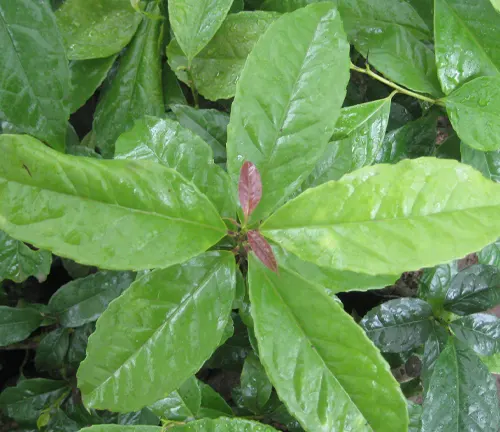
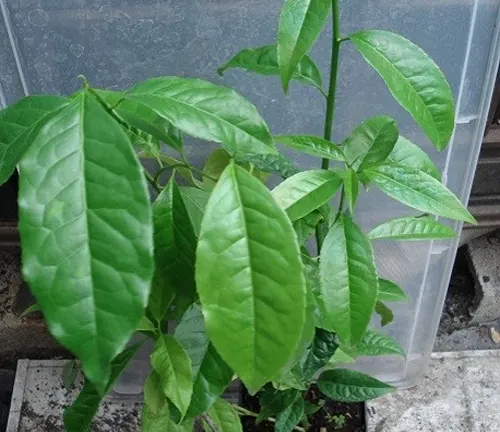
This blend results in a clean and sustained energy boost without the jitters often associated with coffee. Apart from its stimulating properties, guayusa is celebrated for its earthy and slightly sweet flavor profile, making it a popular choice among those seeking an alternative to conventional caffeinated beverages. In recent years, guayusa has garnered attention in the global market as a functional and sustainable ingredient, finding its way into energy drinks, herbal teas, and dietary supplements.
Beyond its commercial appeal, guayusa remains deeply rooted in Amazonian traditions, symbolising a connection to nature and serving as a communal beverage during rituals and social gatherings. As interest in diverse and natural sources of energy continues to grow, guayusa stands out as a fascinating botanical gem with both cultural and commercial significance.
| Attribute | Details |
|---|---|
| Scientific Name | Ilex guayusa |
| Native Region | Amazon rain forest, primarily in Ecuador and parts of Peru |
| Traditional Use | Consumed as a tea by indigenous communities |
| Caffeine Content | Comparable to coffee, providing a clean and sustained energy |
| Flavor Profile | Earthy and slightly sweet |
| Additional Compounds | Contains theobromine and L-theanine |
| Commercial Uses | Featured in energy drinks, herbal teas, and supplements |
| Cultural Significance | Used in rituals and social gatherings among indigenous communities |
| Global Recognition | Gaining popularity as a functional and sustainable ingredient |
| Botanical Family | Holly family |
| Connection to Nature | Symbolizes a connection to nature in Amazonian traditions |
Botanical Beauty of “Guayusa”
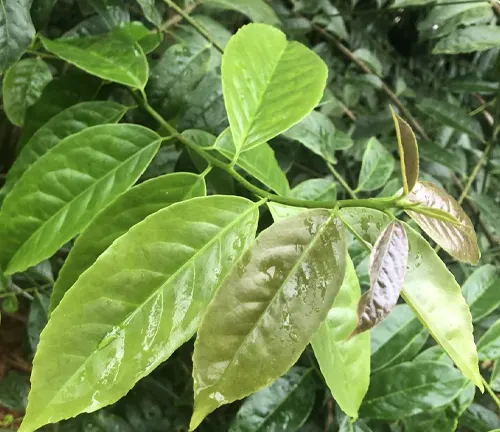
In the heart of the Amazon rain forest lies a botanical gem known as “Guayusa” (Ilex guayusa), a plant that not only captivates with its lush greenery but also holds cultural significance among indigenous communities in Ecuador and parts of Peru. This woodland beauty, belonging to the holly family, has become increasingly recognized for its unique attributes, making it a fascinating subject of botanical exploration.
Woodland Elegance
Guayusa stands out with its elegant demeanor, gracing the rain forest with glossy, elongated leaves and an upright stature. Unlike its more famous counterparts, this holly species exudes an earthy charm that has endeared it to those seeking alternatives to mainstream caffeinated beverages. The plant’s aesthetic appeal goes hand in hand with its rich cultural history, as it takes center stage in communal rituals and gatherings among the native people.
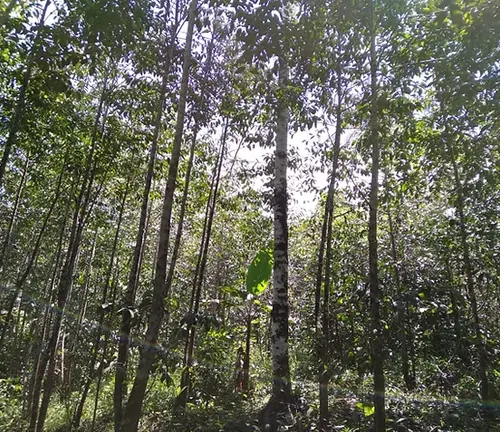
Ecological Importance
Beyond its aesthetic allure, Guayusa plays a crucial role in the Amazonian ecosystem. Its presence contributes to the biodiversity of the rain forest, providing habitat and sustenance for various species. The plant’s ability to thrive in its natural habitat highlights its resilience and adaptability, making it an integral part of the intricate web of life in the Amazon.
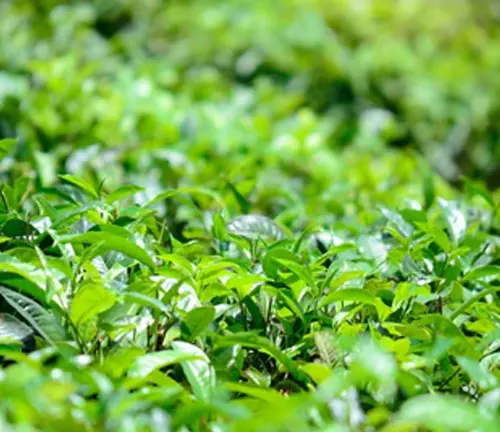
Cultivation and Conservation
As the demand for Guayusa expands globally, efforts are underway to cultivate and conserve this precious plant. Sustainable farming practices are being promoted to ensure a balance between meeting commercial needs and preserving the plant in its natural environment. Indigenous knowledge is harnessed, creating a synergy between traditional cultivation methods and modern conservation strategies.
Soil Stabilization
One of the unsung ecological heroes, Guayusa contributes to soil stabilization in the rain forest. Its extensive root system helps prevent soil erosion, maintaining the integrity of the forest floor. This understated role in environmental stability adds to the plant’s ecological importance, showcasing the intricate ways in which nature harmonizes its elements.
Common Uses
In the heart of indigenous communities, Guayusa is more than just a plant—it’s a communal beverage. Traditionally consumed as a tea, it fosters a sense of unity and connection during ceremonies and social interactions. Beyond cultural practices, Guayusa has found its way into modern kitchens and markets, becoming a popular ingredient in energy drinks, herbal teas, and dietary supplements.
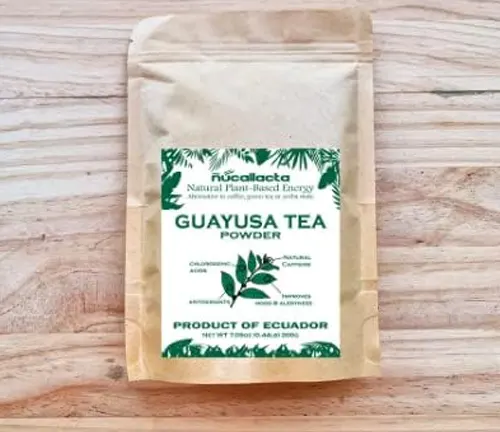
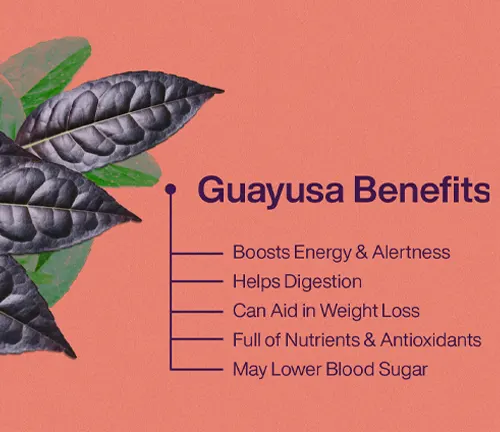
Benefits
Guayusa’s appeal extends beyond its cultural and ecological contributions; it offers a range of benefits to those who consume it. Boasting a caffeine content rivaling coffee, Guayusa provides a clean and sustained energy boost without the jittery side effects. Its unique combination of compounds, including theobromine and L-theanine, creates a harmonious blend that sets it apart as a functional and health-conscious choice.
Biological Brilliance of Guayusa
Nestled within the verdant embrace of the Amazon rain forest, Guayusa (Ilex guayusa) reveals its biological brilliance, captivating botanists and enthusiasts alike. This holly species, with its elongated leaves and enchanting greenery, is more than just a plant; it’s a living testament to the intricate wonders of the rain forest’s biodiversity.
Navigating Guayusa’s Natural Realm
Embarking on a journey through the heart of Guayusa’s habitat unveils a rich tapestry of biodiversity. This habitat map not only delineates the geographical distribution of Guayusa but also highlights its ecological companions. From towering trees to vibrant under story plants, the rain forest provides the perfect backdrop for Guayusa to thrive, showcasing the interconnected web of life in its natural realm.
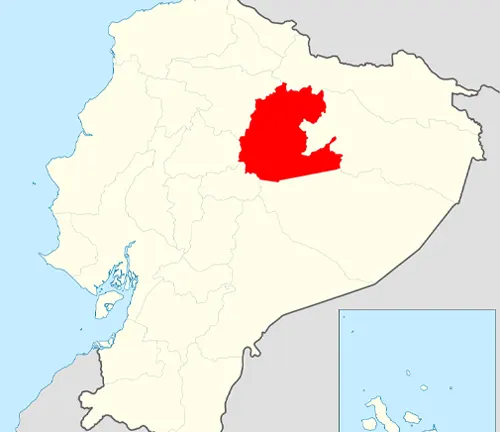
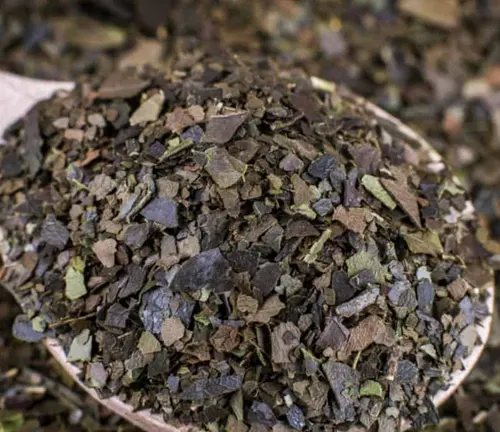
Unveiling the Secrets Within
Delving into the depths of Guayusa’s composition reveals a treasure trove of components that contribute to its unique properties. The caffeine content, comparable to coffee, is accompanied by a symphony of compounds such as theobromine and L-theanine. Together, these elements orchestrate a harmonious blend, providing a distinctive flavor profile and a sustainable source of energy for those who seek a natural alternative.
Navigating Guayusa’s Impact
Exploring the potential side effects of Guayusa is crucial for a holistic understanding of its consumption. While its caffeine content offers a clean and sustained energy boost, it’s essential to consider individual sensitivities. Guayusa’s side effects are generally mild, with some individuals reporting increased alertness. Understanding these nuances ensures that consumers approach Guayusa with an informed perspective, harnessing its benefits while respecting individual tolerances.
Different Species
Ilex paraguariensis
(Yerba Mate)
While not Guayusa, Yerba Mate is another well-known species within the Ilex genus. It is native to South America and is traditionally consumed as a tea, much like Guayusa.
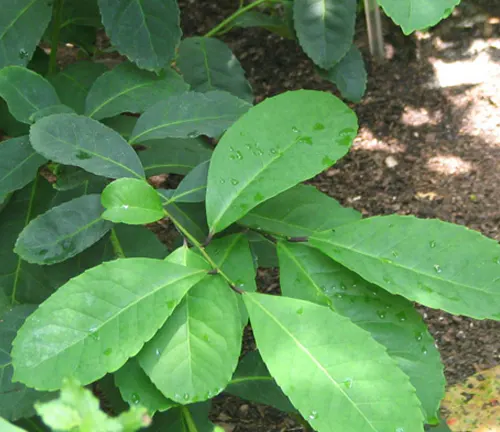
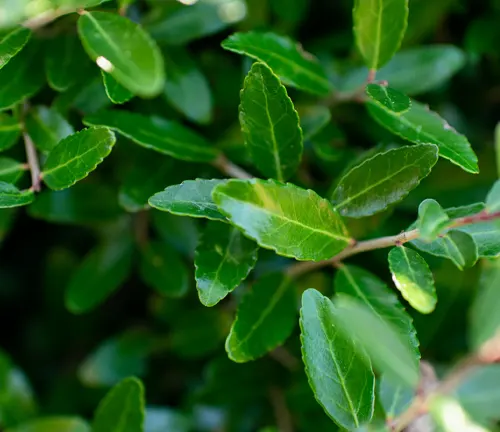
Ilex vomitoria
(Yaupon Holly)
Found in the southeastern United States, Yaupon Holly has historical significance among Native American tribes. It is caffeinated and has been used to make tea.
Ilex aquifolium
(Common Holly)
Widely known in Europe, Common Holly is a species that bears red berries and is often associated with winter festivities.
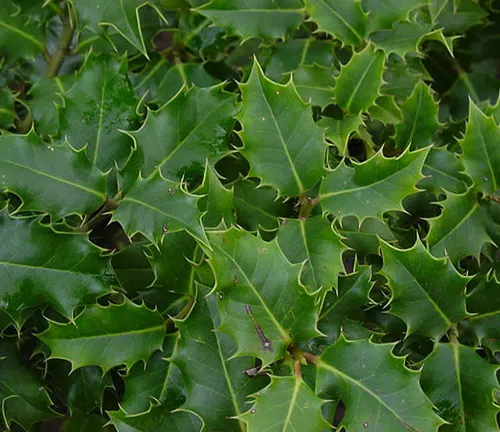
Frequently Asked Questions (FAQs)
1. What is Guayusa?
Guayusa (Ilex guayusa) is a holly species native to the Amazon rain forest, known for its leaves used to make tea. It has gained popularity for its unique properties and cultural significance.
2. How is Guayusa consumed?
Guayusa is traditionally consumed as a tea. The leaves are brewed to make a beverage that is often described as having an earthy and slightly sweet flavor. It can also be found in various commercial products like energy drinks and herbal teas.
3. What are the benefits of Guayusa?
Guayusa is praised for its clean and sustained energy boost due to its caffeine content. It also contains theobromine and L-theanine, contributing to a unique and balanced stimulant effect. Additionally, it is rich in antioxidants.
4. Does Guayusa have side effects?
While generally considered safe, Guayusa does contain caffeine, so individuals sensitive to caffeine may experience side effects such as increased heart rate or insomnia. Moderation is advised.
5. How does Guayusa compare to other caffeinated beverages?
Guayusa’s caffeine content is comparable to coffee but is often said to provide a smoother and jitter-free energy boost due to its unique combination of compounds.
6. Where is Guayusa grown?
Guayusa is primarily grown in the Amazon rain forest, with Ecuador and parts of Peru being the main regions for its cultivation.
7. Is Guayusa sustainable?
Efforts are underway to cultivate Guayusa sustainably, balancing commercial demand with conservation. Indigenous cultivation methods and modern conservation strategies are often combined to protect both the plant and its natural habitat.
8. Can I grow Guayusa at home?
While Guayusa is traditionally grown in its native rain forest habitat, it may be challenging to cultivate outside of its natural environment due to specific climate and soil requirements.
9. Are there different varieties of Guayusa?
The term “Guayusa” typically refers to the species Ilex guayusa. While there may be some variations based on growing conditions, it is not as diversified as other plants with multiple varieties.
10. What is the cultural significance of Guayusa?
Guayusa holds cultural importance among indigenous communities in the Amazon, where it is used in communal rituals and gatherings. It symbolizes a connection to nature and is considered a communal beverage.


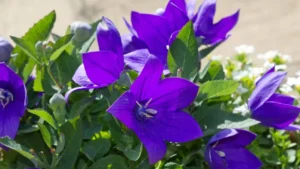
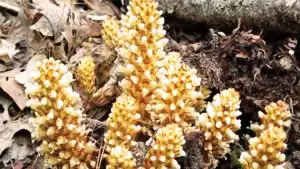
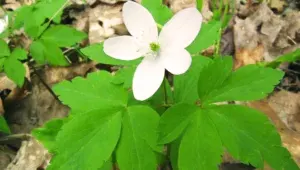


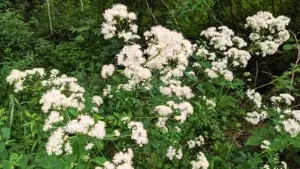
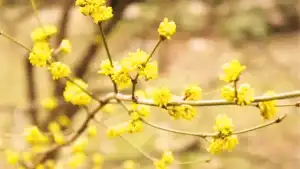
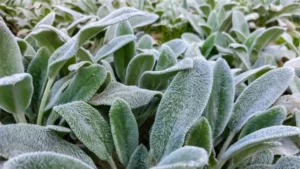
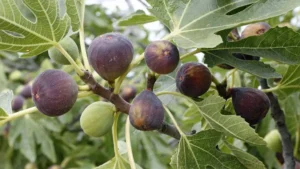

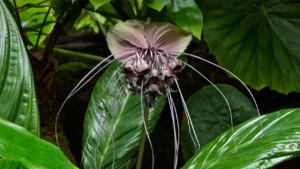

Leave your comment